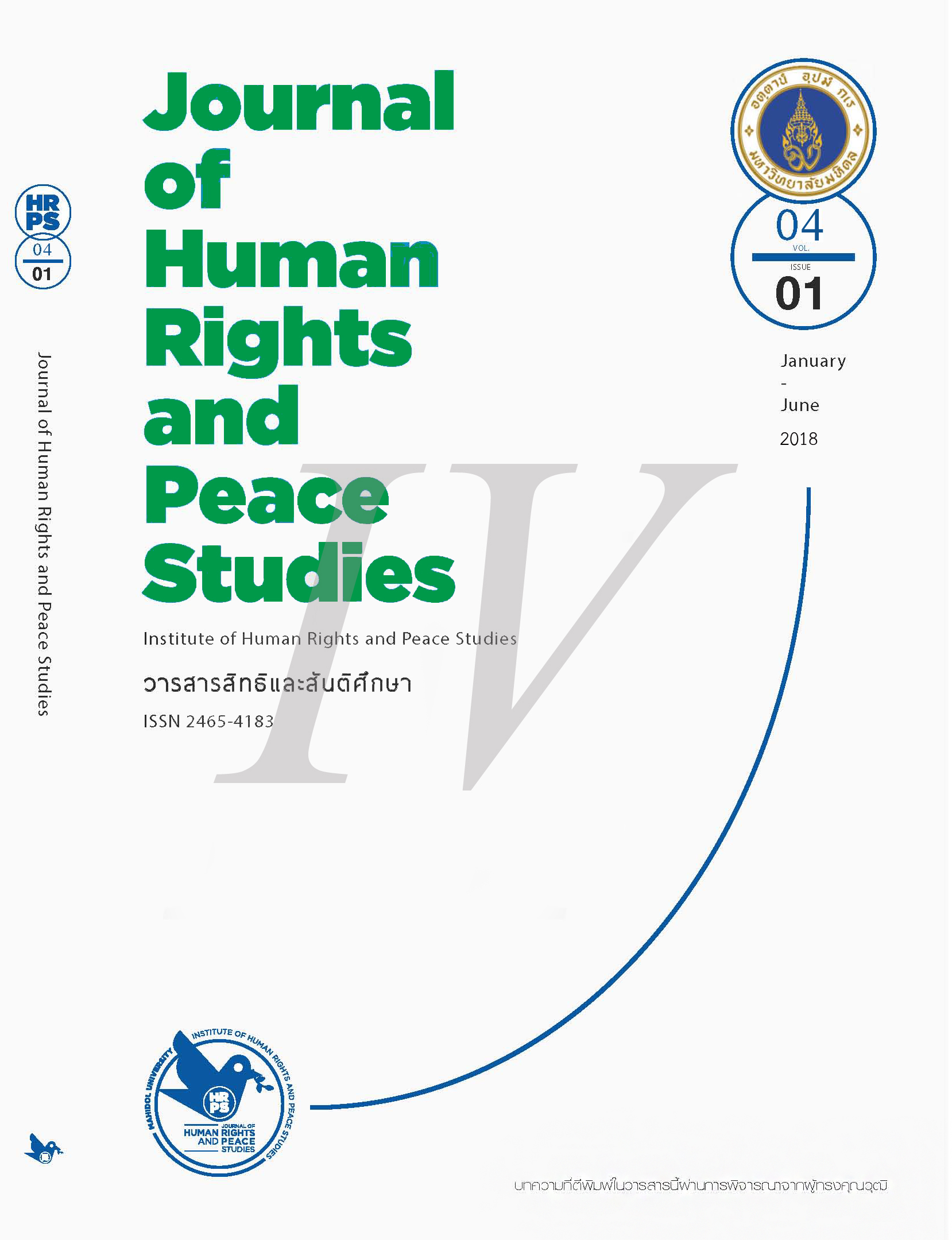Transitional Justice and Political Reconciliation in Cambodia
Main Article Content
Abstract
Transitional justice provides inconclusive accounts of the relationship between its many mechanisms, including trials, truth commissions, amnesty and traditional practices, and reconciliation. If the goal of justice is to bring peace and democracy, then political reconciliation should be the main focus along with the tribunal process. Using Cambodia as a case study, this paper examines the attempt to deal with the country's past atrocities and argues that whether it is in the form of tribunals or compromises, little has been contributing to building political reconciliation among the Cambodian political factions. Guided by Murphy’s theoretical framework and the auto ethnographic approach, this study reveals that the political identity with which each political group has labeled each other has undermined social and moral conditions, threatening the rule of law, political trust, and relational capabilities that are necessary for peace and democracy. This paper also uses current surveys of Cambodia’s younger generation to reveal the prioritized process along with the tribunal that the Extraordinary Chambers in the Courts of Cambodia is processing.
Article Details
The views, opinions, and pictures expressed in this journal are those of the authors and do not necessarily reflect the opinions and viewpoints of the editor and the editorial board. All rights are reserved by the authors and the Institute of Human Rights and Peace Studies of Mahidol University. No part of this journal may be reproduced, stored in a retrieval system, or transmitted in any form or by any means without the prior permission in writing from the journal’s editor, or as expressly permitted by law, or under terms agreed with the appropriate reprographics rights organization. Non-commercial use of information in this journal must be properly referenced.


